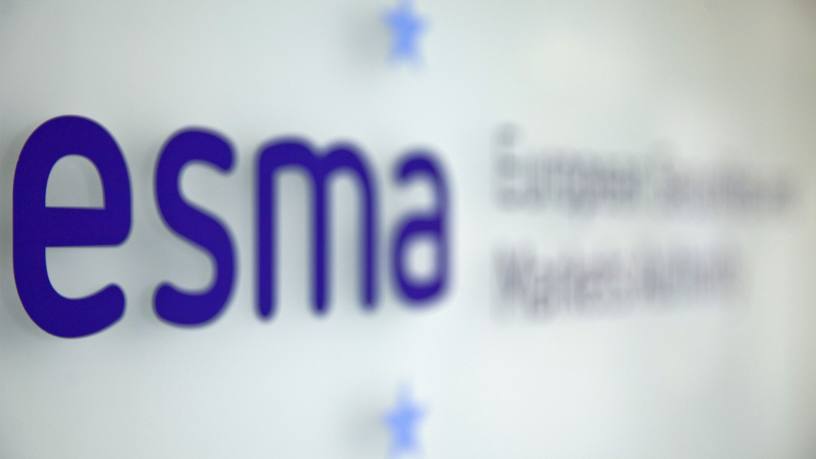


The European Securities and Markets Authority is seeking expanded powers to oversee major stock exchanges and critical financial infrastructure across the EU.
In an interview with the Financial Times on Monday, Esma chair Verena Ross pointed to growing political support within the European Commission for centralising financial market supervision to strengthen the bloc’s capital markets.
“There is clearly a political appetite,” Ross said, adding that Esma should focus on expanding its supervision to “cross-border systemically important infrastructure players”, including exchanges, clearing houses and settlement services such as Euronext and the Deutsche Börse.
Former European Central Bank president Mario Draghi has previously endorsed the transformation of Esma into a “single common regulator for all EU security markets”, calling it a “key pillar” for boosting EU capital markets. However, smaller EU nations have expressed their concerns, fearing it could undermine their thriving financial sectors.
Acknowledging their objections, Ross suggested a “step-by-step” approach, rather than an immediate transformation into an all-powerful European counterpart to the US Securities and Exchange Commission, would be more practical for expanding Esma’s oversight.
“Having an effective regulatory and supervisory framework has a big impact on making a single capital market work, and we don’t have that in Europe. So that is one of the areas that we need to focus on,” Ross said.
—
GQG Partners, one of BBVA’s largest shareholders, has sold its entire stake in the Spanish bank due to its opposition to BBVA’s €10bn hostile bid for domestic rival Banco Sabadell.
According to a Financial Times report on Sunday citing sources familiar with the matter, GQG sold its stake in July after telling BBVA’s management team that pursuing the Sabadell takeover would be too time-consuming and distracting, and dilute the bank’s focus on emerging markets.
Florida-based GQG bought a 3 per cent stake in BBVA three years ago, making it the bank’s third-biggest shareholder at the time. As recently as June this year, GQG was still a top-five shareholder, according to S&P Capital IQ data.
Sabadell rejected BBVA’s all-share offer in May, which was BBVA’s second attempt to acquire the lender after a failed bid in 2020. The rejection prompted Spain’s second-largest bank to launch a hostile takeover. The bid has been met with opposition from the Spanish government but was approved by the European Central Bank in September.
However, the acquisition still awaits approval from Spain’s antitrust watchdog, with a review potentially extending into the first quarter of 2025 if the competition authority requires more in-depth analysis.
—
Norway’s largest bank, DNB, announced on Monday that it has agreed to acquire Swedish investment bank and asset manager Carnegie from private equity firm Altor and minority owners for around SKr12bn ($1.14bn). The all-cash deal, subject to regulatory approvals, is expected to close in the first half of 2025.
“We and Carnegie are realising our joint ambition to build a leading player across the Nordic region in investment banking, securities brokerage and research, corporate banking, private banking and asset management,” DNB said in a statement.
DNB expects the deal to generate a return on invested capital above 15 per cent and lead to efficiency gains across the group’s combined operations. Following the acquisition, DNB’s investment banking unit will be renamed DNB Carnegie.
Carnegie manages assets worth SKr436bn and employs 850 people. Shares in DNB rose 0.5 per cent following the announcement.
—
UBS announced on Monday that it is selling its 50 per cent stake in credit card provider Swisscard, acquired through its takeover of Credit Suisse, to its joint venture partner, American Express. The deal will make American Express the sole owner of Swisscard, with Credit Suisse customers transitioning to UBS’s existing credit card platform.
While the terms of the sale were not disclosed, UBS explained in a statement that issuing cards through Swisscard no longer aligns with its operational and strategic priorities.
In a separate statement, Swisscard confirmed that it will continue to issue American Express, Mastercard and Visa cards, with no immediate impact on current cardholders, merchants or partners.
“This transfer of portfolios has no impact on the combined Credit Suisse card portfolio of SFr400mn ($462mn) of ABS notes in circulation,” Swisscard said.
Its divestment of Swisscard follows UBS’s $91.4mn sale of Credit Suisse Securities (China) to a Beijing state-owned asset manager in June and the sale of its former insurance-linked investment business to the unit’s management team for an undisclosed price in July.